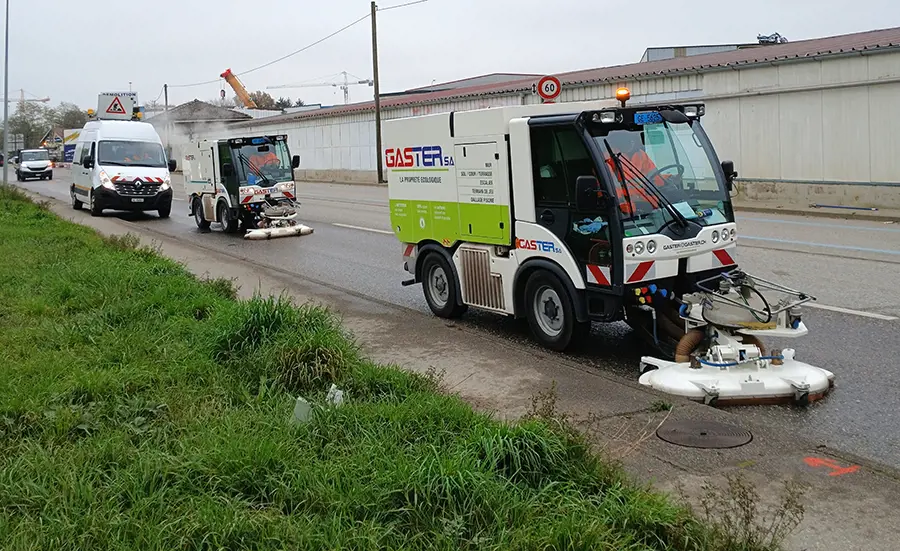
Assessment of high-pressure road cleaning using bioassays
Sound-absorbing asphalt pavements are being used more and more on Swiss roads. Thanks to their porous structure - created by a high proportion of voids (15 to 25%) - they effectively reduce the noise generated by traffic. However, over time, these pores tend to become blocked, which gradually reduces their acoustic effect. It is nevertheless possible to clean these surfaces regularly to maintain their sound-absorbing properties for longer. This operation involves spraying water at high pressure and at a temperature of 50°C onto the surface of the pavement, and then recovering it by suction.
As part of the evaluation of a new cleaning vehicle, the effectiveness of the process and the toxicity of the washing water are analysed. To this end, the road surfaces are artificially sprayed beforehand in a controlled manner. Water samples are then taken before and after cleaning, and subjected to biological tests (bioassays). After high-pressure cleaning, the water collected and recycled in the truck is also sampled. For the analysis, the Ecotox Centre applies a protocol that has already been validated in previous projects, notably for the study of leachates from construction materials.
Applied Bioassays
- Luminescent bacteria test for general toxicity
- Combined algae test: effects on photosynthesis and growth
- Chronic reproduction test with water fleas
- umuC test: determination of genotoxicity
- L-YES: Determination of the estrogenic effect
- HPTLC coupled bioassays for general toxicity, genotoxicity and estrogenic effects
